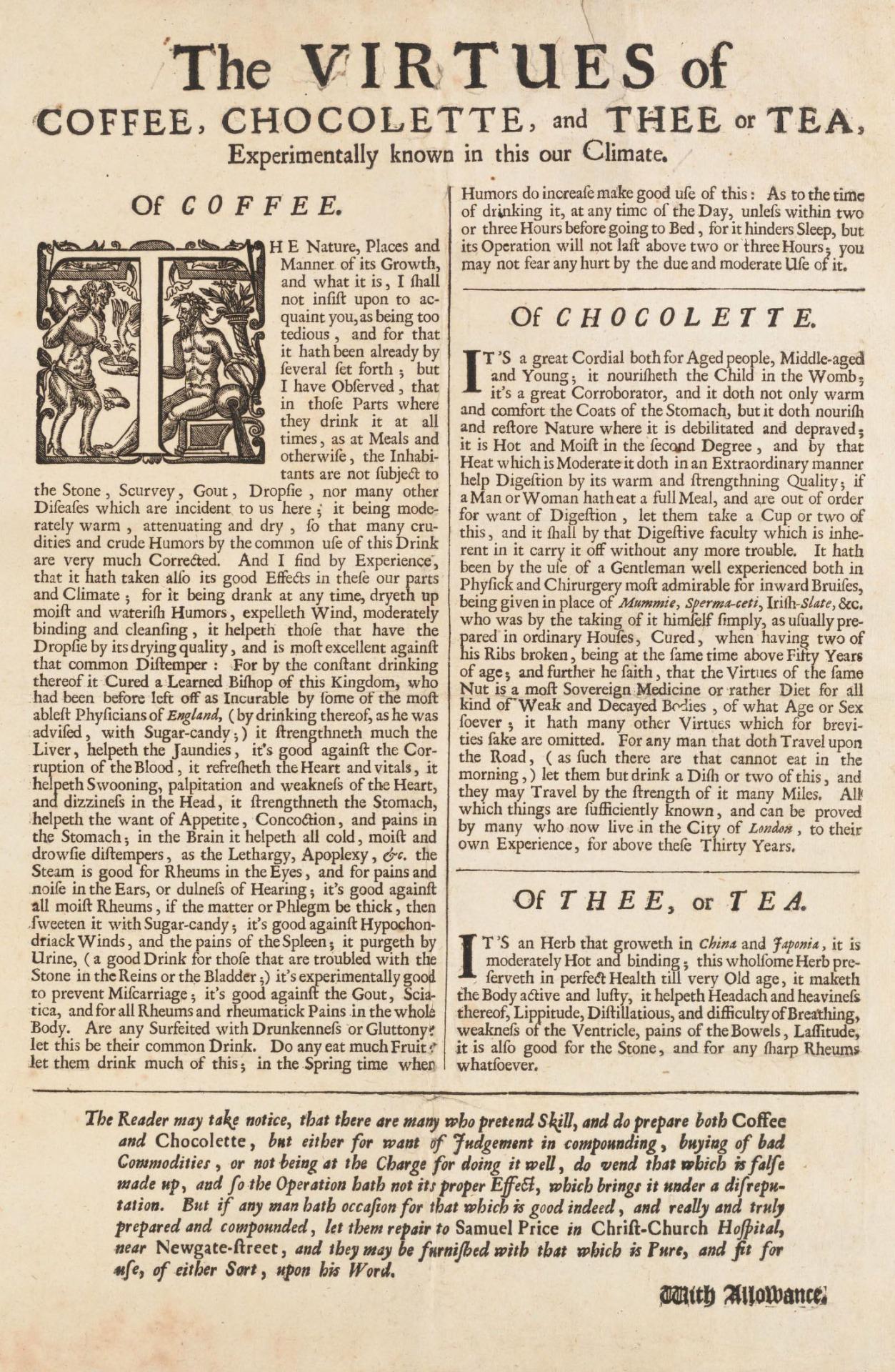The Vault is Slate’s history blog. Like us on Facebook, follow us on Twitter @slatevault, and find us on Tumblr. Find out more about what this space is all about here.
In this 1690 broadside advertisement, London merchant Samuel Price deployed rumor and vivid anecdote to advance the medical case for drinking coffee, chocolate, and tea. Forty years after the opening of the first coffeehouses in London, Price, who had “really and truly prepared and compounded” coffee and chocolate for sale, circulated this text that argued that people should drink these beverages at home, and often.
Price’s advertisement’s litany of claims for coffee’s health benefits mix advantages we’d recognize today with others that seem far-fetched. The authors observed that coffee-drinking populations didn’t get common diseases: “the Stone” (kidney stones); “Scurvey, Gout, Dropsie” (edema, or retained fluid). Speaking to an audience that still believed in the theory of the four humors, they argued that coffee, being “drying,” would help fix “moist and waterish Humors.” People who couldn’t hear well, or suffered from lethargy, want of appetite, or swooning, would also find the drink helpful. “It’s experimentally good to prevent Miscarriage,” they added, apparently not wanting to claim too much.
The other two common warming drinks got less attention—they were helpful, perhaps, but not quite of the same caliber as coffee. The authors envisioned Chocolate as a get-up-and-go drink for “any man that doth Travel upon the Road,” who might take some chocolate as breakfast and “Travel by the Strength of it many Miles.” Tea gets relatively short shrift in this advertisement, perhaps because Price (according to the footnote) didn’t sell that commodity in his shop near Newgate Street.
I first saw this advertisement on the Tumblr of Harvard’s Houghton Library.

Houghton Library, Harvard University, Cambridge, Massachusetts.